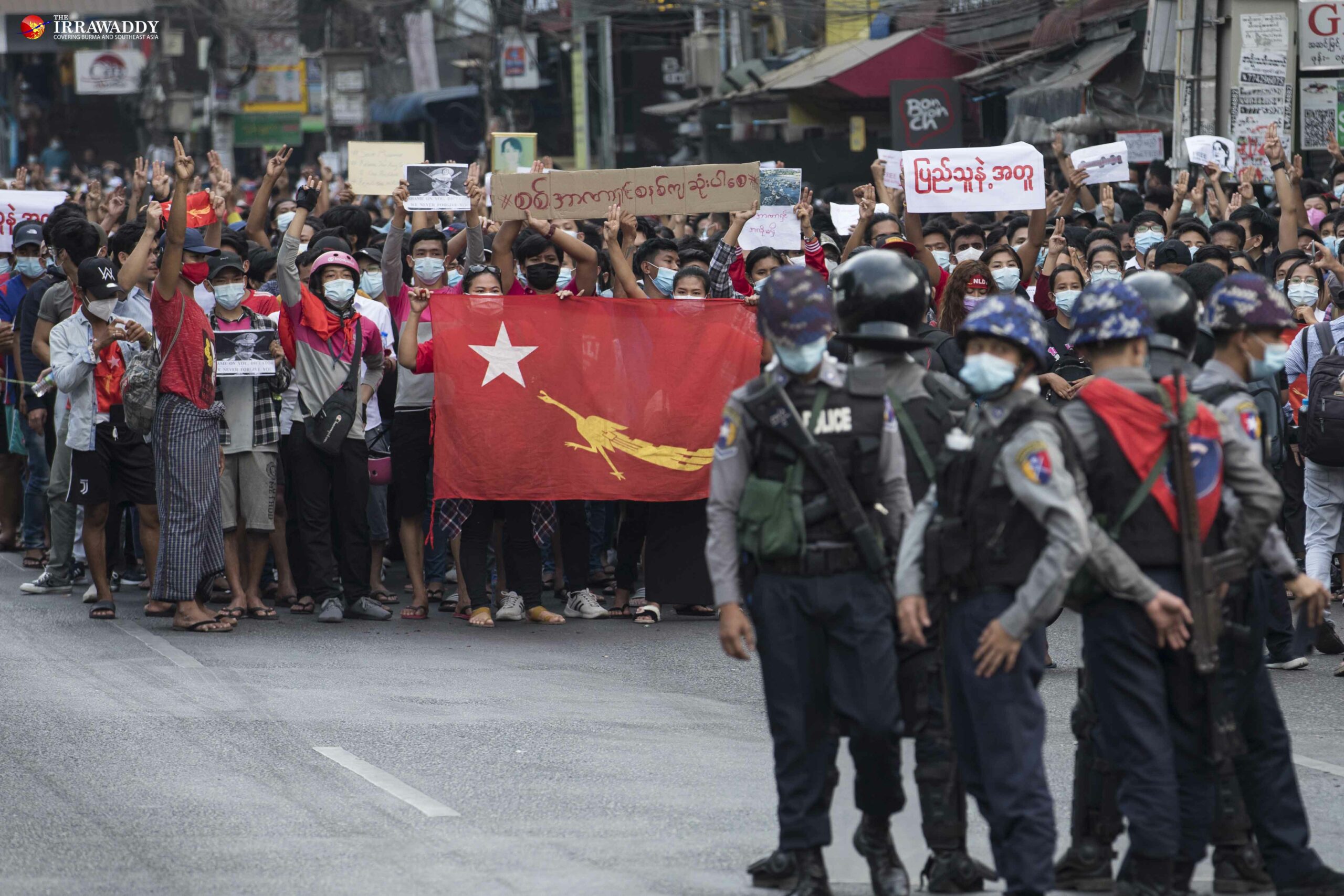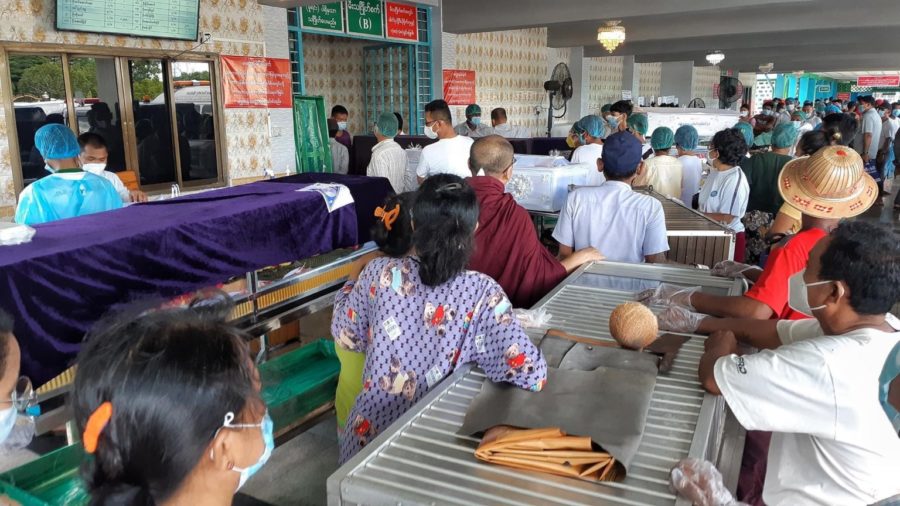Now it is official: Brunei’s Second Minister of Foreign Affairs Erywan Yusof is ASEAN’s special envoy to Myanmar.
The process of selecting the special envoy took time, while lives were lost in Myanmar. ASEAN was criticized for dragging its feet over the appointment of the envoy while the political violence in Myanmar escalated.
Initially, three other candidates were proposed: Indonesia’s former foreign minister Hassan Wirajuda, Thailand’s former deputy foreign minister Virasakdi Futrakul and Malaysia’s Razali Ismail, a former UN special envoy to Myanmar in the early 2000s.
Myanmar’s coup leader Senior General Min Aung Hlaing preferred Virasakdi, who served as ambassador to Myanmar in the early 1990s and is reportedly close to the Myanmar military.
Myanmar activists and observers are very much aware of the Thai military’s close ties with the military in Myanmar and didn’t want Virasakdi.
In fact, from the outset, ASEAN misread the military’s takeover as just another coup that would succeed. So far the coup in Myanmar has yet to succeed after six months and continues to face strong resistance. Thus, some critics have even called it a failed coup.

ASEAN’s announcement of the special envoy in a joint communique came three months after the bloc agreed on a five-point consensus to halt the violence in Myanmar, including sending humanitarian aid to the country and putting in place a process that would try to facilitate dialogue among all parties concerned.
The Bruneian diplomat said on Saturday that he should be given full access to all parties when he visits Myanmar. It is not known yet when he will visit.
“The planned visit to Myanmar is in the pipeline, and what we need to do is make sure we’re well prepared when we go there, unlike the visit I had in June,” Erywan told reporters in Bandar Seri Begawan, the capital of the tiny sultanate, which shares the island of Borneo with Malaysia and Indonesia.
The people of Myanmar don’t have much faith in ASEAN, or give it much credibility; they worry that the junta, like its predecessors, will manipulate ASEAN to advance its interest—to remain in power—or, failing that, shut the door on the regional grouping.
‘Unrealistic timelines’
Singapore’s foreign minister, Vivian Balakrishnan, said it was too early to say how long the ASEAN effort to foster talks would take, saying “political solutions, whilst essential, are difficult, and will take, in my view, prolonged negotiations and discussions,” The Straits Times reported.
Singapore, meanwhile, has “engaged across the political spectrum in Myanmar”, Balakrishnan told reporters, declining to give further details.
“Singapore believes very firmly that there should be no external interference in the country. A country’s ultimate destiny is in the hands of its people,” he said. “Therefore, I would avoid trying to put unrealistic timelines.”
Last week, coup leader Snr-Gen Min Aung Hlaing pledged to hold an election by 2023. If it is held, the election would be without the National League for Democracy (NLD), which won a landslide victory in the 2020 general election.
Last month, the election outcome was annulled by the junta. The military-appointed Union Election Commission (UEC) announced the decision claiming that more than 11.3 million ballots had been discounted due to alleged fraud and other irregularities during the Nov. 8 vote.
Balakrishnan called the situation in Myanmar a “perfect storm”.
“The violence unfortunately has not stopped. There has been no release of the political detainees,” he said.
“There has been no dialogue going on between… all the stakeholders in Myanmar. And on top of the political turmoil, the economic standstill. Then to make things worse, the very dire COVID-19 situation.”
“The political turmoil contributes to the humanitarian disaster which is unfolding now and there is a need for us to extend assistance to the maximum extent that we can to the people of Myanmar,” said Balakrishnan.
“We hope that the assistance provided to Myanmar will reach the people on the ground with urgent and dire needs because of COVID-19. So this remains our focus right now.”
Meanwhile, the West, including the EU, as well as the UN and China have backed ASEAN’s five-point consensus.
Special envoys’ graveyard
Since 1988, Myanmar has seen dozens of special envoys flocking to the military-ruled country. They have miserably failed at their missions, often duped by the regime leaders.
Currently the UN has two Myanmar envoys: Special Envoy Christine Schraner Burgener and UN Special Rapporteur on the Situation of Human Rights in Myanmar Tom Andrews. Both have been denied visas to enter Myanmar.

In the past, the military regime known as the SLORC/SPDC co-opted some envoys or denied visas or simply stalled for time. For instance, Malaysia’s Razali, who was UN special envoy in the 2000s, was denied a visa. He quit in January 2006 in frustration at being denied a visa for 23 months in a row.
Some UN envoys were simply suckered. In the eyes of Myanmar’s oppressed citizens they were just laughing stocks.
In the past, the regime simply provided a list of candidates ahead of time that it would allow the envoys to meet with.
Many were regime sympathizers, members of political parties allied with the regime, representatives of local NGOs who received a blessing from the regime, scholars and “think tank” members who were known to be close to the regime.
A number of opposition and resistance forces have sprung up against February’s illegitimate coup, including the civilian-led National Unity Government (NUG), the Committee Representing Pyidaungsu Hluttaw (CRPH) and the People’s Defense Force (PDF). The country also has dozens of ethnic armed forces known as Ethnic Armed Organizations (EAOs). They opposed the coup and constitute a formidable opposition to the junta.
‘Terrorist’ organizations
Recently, the junta declared the NUG, CRPH and PDF as “terrorist organizations.”
However, the ASEAN envoy would be expected to engage with the NUG, CRPH and all stakeholders.
Welcoming the appointment of the ASEAN Special Envoy, the European Union spokesman released a statement.
“In accordance with the other commitments in the ASEAN five-point consensus, meaningful political dialogue remains key with all stakeholders including the Committee Representing the Pyidaungsu Hluttaw (CRPH), the National Unity Government (NUG), ethnic groups and other pro-democracy forces committed to working towards a peaceful resolution of the current crisis. In this spirit, the EU expects the military authorities to release those detained in connection with the coup and to end the violence across the country.”
U Wunna Maung Lwin, who serves as foreign minister for the junta, told the ASEAN-EU Ministerial Meeting held via video on Aug. 6, “Myanmar would not support the idea of engaging with CPRH and NUG since the Anti-Terrorism Central Committee on 8 May 2021 had declared them and their subordinates as terrorist groups, including non-state actors as stated in the EU’s spokesperson statement on the appointment of the special envoy because it would be a breach of the five-point consensus of the ASEAN Leaders’ Meeting.”
Does that mean the junta is stubborn—or just clueless?
The military appears unwilling to admit the collapse of the economy and health care system in the country, or how bad things are on the ground. A majority of Myanmar people feel disgust and total opposition to the regime, and this is not waning; it is unfaltering.
In fact, if the junta leaders want to avoid losing face any further, the special envoy’s visit and engagement should provide an opportunity for them to climb down off the cliff and negotiate with the NLD and other political forces. But that is wishful thinking.
We know the answer. The generals won’t take this path.
You may also like these stories:
Myanmar Military and Ethnic Armed Groups Clash Close to Border With China
Myanmar Junta Troops Killed in Kayah State Firefight
Myanmar Surgeon Arrested by Junta Dies After Contracting COVID-19 in Prison

















